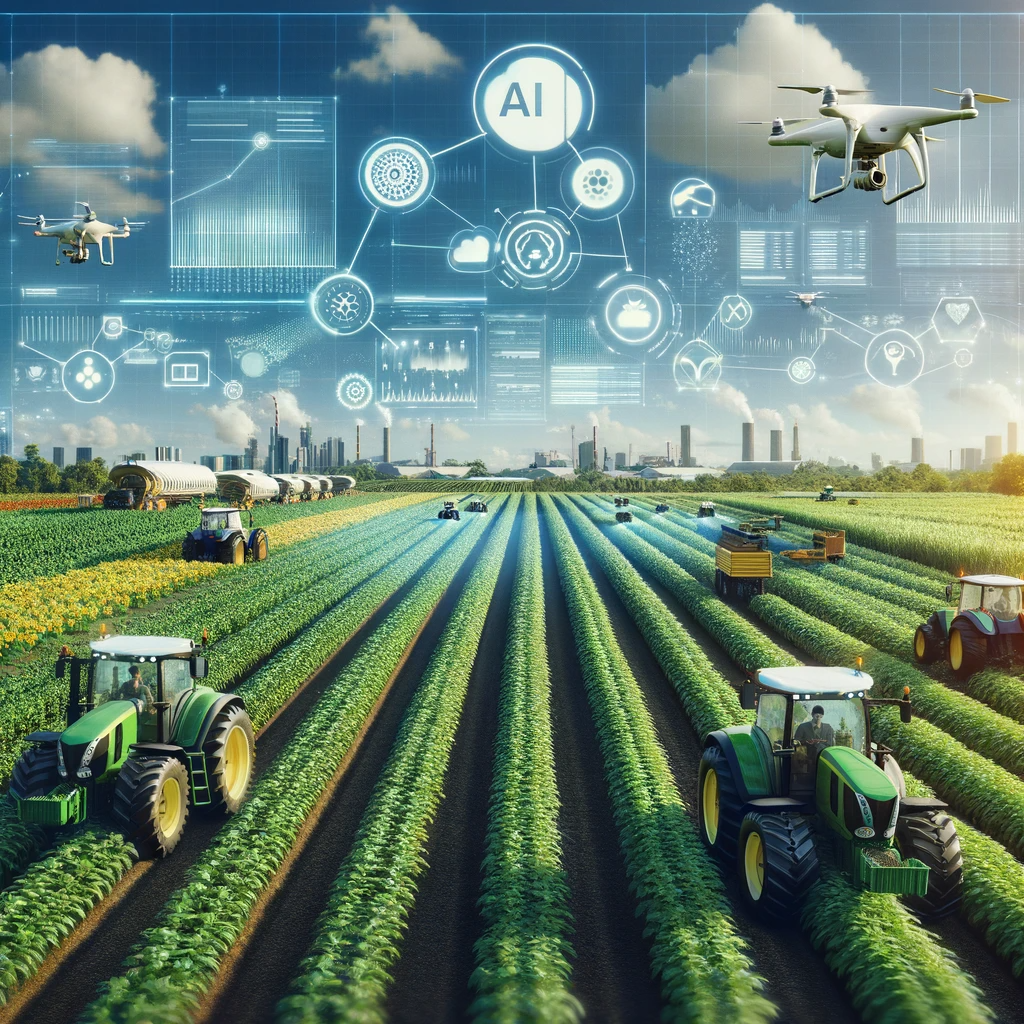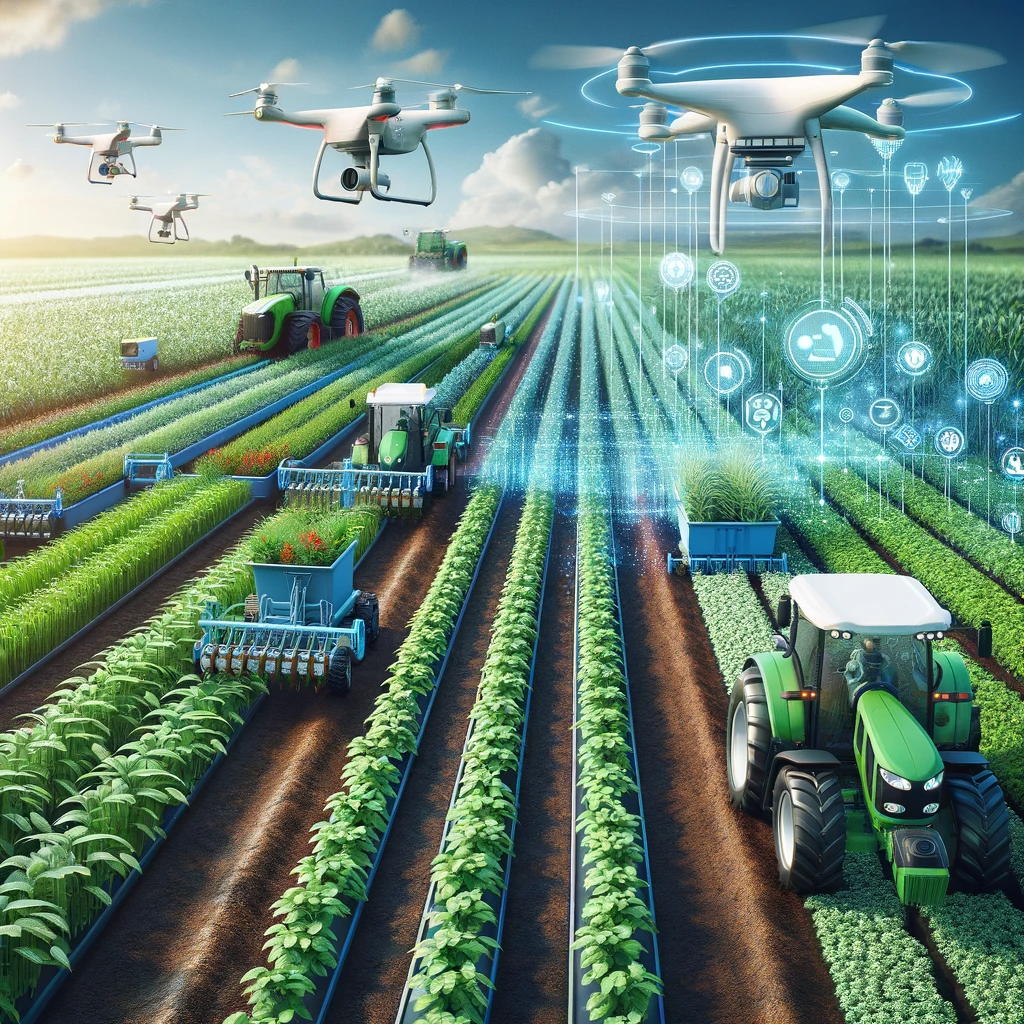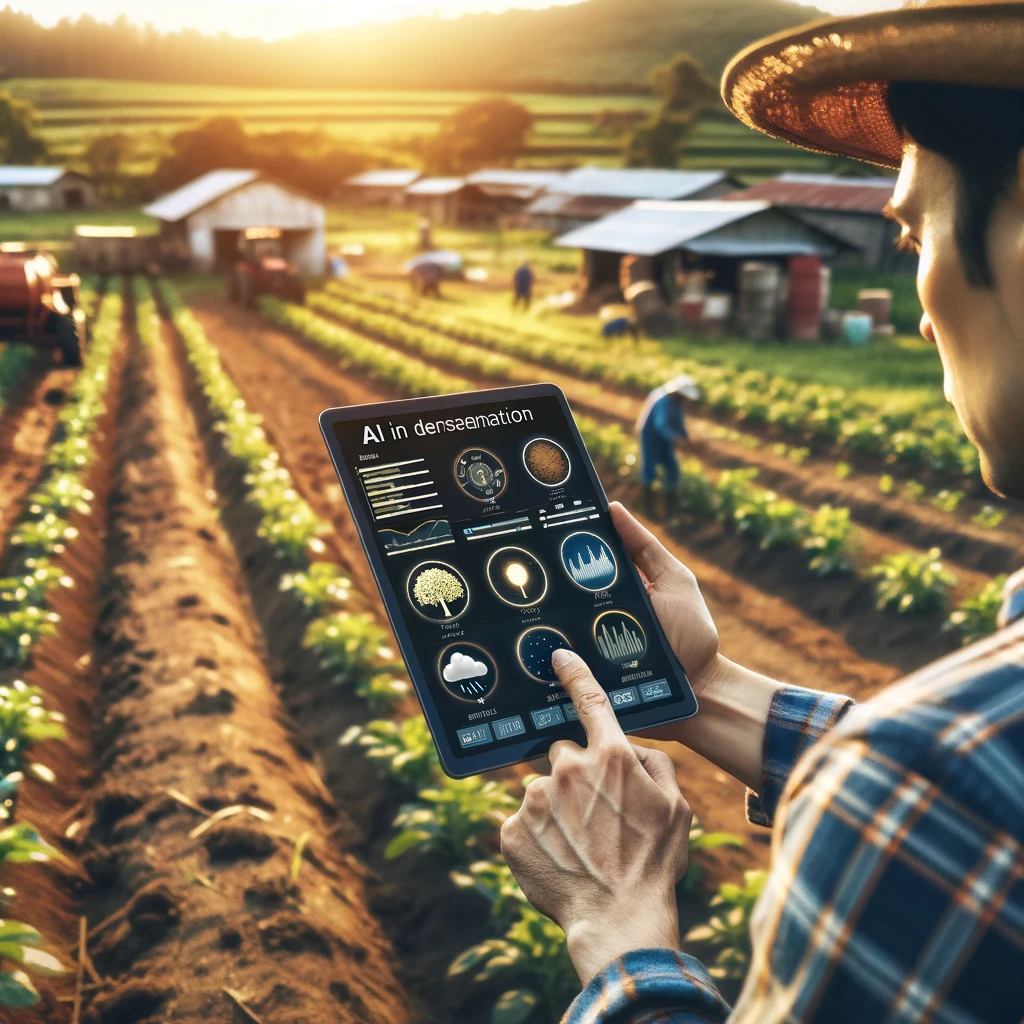Farming, the age-old practice that sustains our food supply, has undergone a remarkable transformation in recent years thanks to the integration of artificial intelligence (AI). As our world grapples with population growth and environmental challenges, the role of AI in agriculture has become increasingly crucial. This article explores the impact of AI on farming, highlighting its potential to revolutionize traditional methods and pave the way for more efficient and sustainable practices.
The Evolution of Agriculture: From Traditional to Technological
Agriculture has come a long way since the days of manual labor and rudimentary tools. Traditional farming practices, which have sustained humanity for millennia, are now being complemented by cutting-edge technologies driven by AI. The transition from traditional to technological farming is marked by several key advancements.
Precision Agriculture: Targeting Efficiency with AI
One of the fundamental shifts brought about by AI in agriculture is the concept of precision farming. This approach relies on AI-driven tools and technologies to optimize every aspect of farming, from soil analysis to crop management. Precision agriculture tailors farming practices to the specific needs of each plant, minimizing waste and maximizing yield.
Precision farming employs a range of AI-powered tools, including drones equipped with multispectral cameras that capture detailed images of crops. These images are then processed using AI algorithms to detect subtle variations in plant health, allowing farmers to pinpoint issues and address them promptly. Additionally, soil sensors and weather data are integrated with AI to optimize irrigation, ensuring that crops receive precisely the right amount of water, reducing water wastage significantly.
Enhancing Sustainability through AI

AI is not just about increasing efficiency; it plays a pivotal role in making agriculture more sustainable. Sustainability in farming encompasses a range of objectives, including reducing the environmental impact, conserving natural resources, and promoting biodiversity.
AI contributes to sustainability by optimizing resource utilization. For instance, AI-driven irrigation systems reduce water consumption, benefiting regions facing water scarcity. By providing real-time insights into soil conditions and crop health, AI minimizes the use of fertilizers and pesticides, preventing soil degradation and reducing chemical runoff into waterways.
Moreover, AI helps farmers make informed decisions about crop rotation and land use, promoting biodiversity and preserving the long-term health of their fields. These practices not only benefit the environment but also ensure the longevity of farming as a viable profession.
The Promise of AI-Enabled Crop Monitoring
Crop monitoring is a critical aspect of modern agriculture, and AI is poised to transform this area significantly. AI-based crop monitoring systems offer real-time data on plant health, growth rates, and potential issues such as diseases or pests. This granular data allows farmers to take timely action, such as targeted pesticide applications or adjustments to irrigation schedules, reducing losses and ensuring healthier yields.
In addition to visual data collected by drones and sensors, AI can process satellite imagery to monitor larger agricultural landscapes. This capability enables the tracking of crop development, identification of areas at risk, and the optimization of resource allocation on a regional scale. Such insights empower farmers and land managers to make proactive choices that enhance both productivity and sustainability.
AI in Livestock Management: Healthy Animals, Healthy Farms
Farming extends beyond crops to include livestock management, and AI plays a crucial role in ensuring the well-being of animals and farm profitability. AI-driven systems can monitor the health and behavior of livestock, identifying early signs of illness or distress. This early detection enables timely intervention, reducing veterinary costs and preventing the spread of diseases among the herd.
Furthermore, AI-enhanced feeding systems can optimize the diet of animals, ensuring that they receive the right nutrients in the most cost-effective manner. This not only improves the health and productivity of livestock but also reduces the environmental impact of farming.
AI’s Role in Sustainable Pest Management
Pest control is a perennial challenge in agriculture, and the excessive use of pesticides can harm the environment and lead to pesticide-resistant pests. AI offers innovative solutions to this problem by enabling predictive pest management.
AI algorithms analyze data from various sources, including weather patterns, historical pest data, and crop conditions, to predict pest outbreaks. By identifying when and where pests are likely to strike, farmers can take preventative measures such as adjusting planting schedules or deploying targeted pest control methods. This reduces the need for blanket pesticide applications, promoting both sustainability and cost-effectiveness.
The Future of Farming: AI-Enabled Autonomy
The integration of AI in agriculture is leading us toward a future of autonomous farming. Autonomous tractors, drones, and robotic harvesters are becoming commonplace on modern farms. These machines are equipped with AI-driven sensors and software that enable them to operate with a high degree of precision.
Autonomous machinery reduces the need for human labor and can operate around the clock, enhancing overall efficiency. They can perform tasks such as planting, weeding, and harvesting with unparalleled accuracy. Moreover, autonomous machines can work in adverse conditions that may be unsafe for human operators, further expanding the possibilities for efficient and sustainable farming.
AI and Global Food Security
Food security is a pressing global concern, and AI has a significant role to play in addressing this challenge. With the world’s population projected to reach nearly 10 billion by 2050, there is a growing need to produce more food with fewer resources. AI’s ability to optimize farming practices, conserve resources, and increase yields is a powerful tool in ensuring a stable food supply for the future.
Challenges and Considerations
While the integration of AI in agriculture offers numerous benefits, it is not without challenges. Access to AI technology, particularly in developing regions, remains a hurdle. Additionally, the collection and management of vast amounts of agricultural data require robust infrastructure and cybersecurity measures.
Moreover, ethical considerations surrounding data ownership, privacy, and the potential for AI to exacerbate economic disparities in farming communities need careful attention.

In Conclusion
AI is undeniably the key to more efficient and sustainable farming practices. From precision agriculture and sustainable resource management to autonomous machinery and pest control, AI technologies are revolutionizing the way we produce food. As the world faces increasing demands on agriculture due to population growth and environmental pressures, AI offers a promising path toward a more sustainable and food-secure future. The collaboration between human ingenuity and AI’s computational power holds the potential to transform farming and nourish a growing world population.
